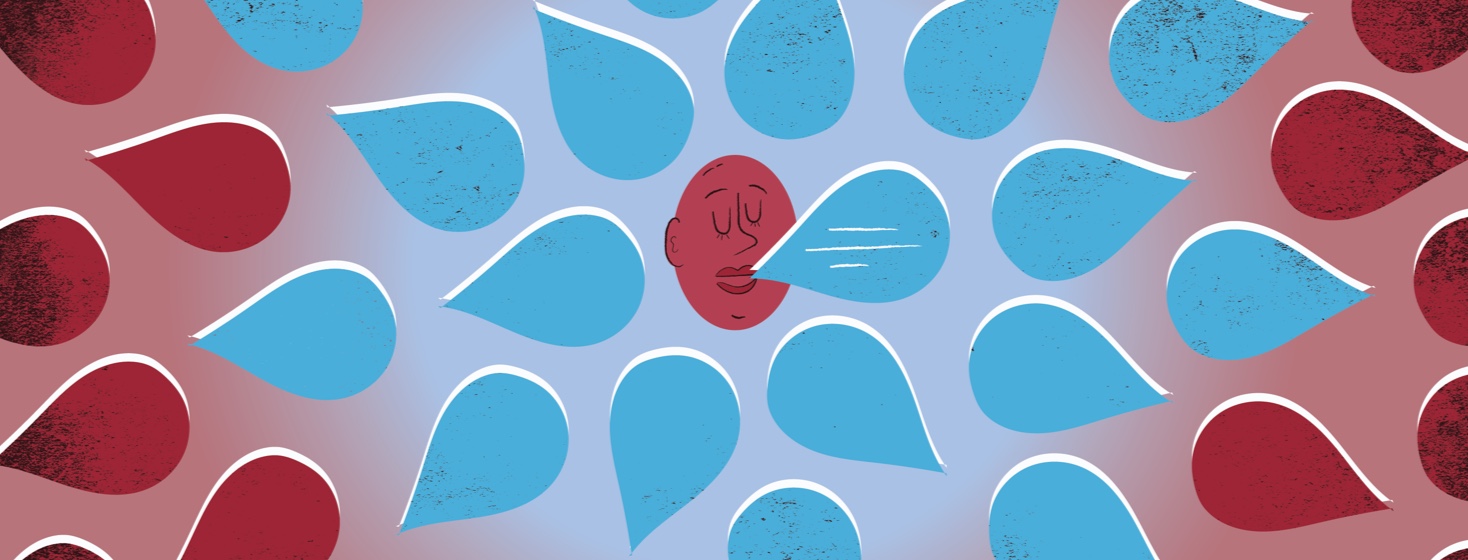“You Don't Look Sick” & Other Things Not to Say to Cancer Patients
Just as you wouldn’t ask a woman on the street “When are you due?”, there are certain words that are better left unsaid. In the cancer community, there are questions that can cause pain or sadness even if the intentions are good.
Comments to someone with cancer about weight
“Wow, you lost so much weight.” or “You’re so skinny now”.
An unfortunate side effect of major surgery, chemo, and radiation is weight loss. I lost 20 pounds in a single month after my surgery. I remember people telling me I looked like a model or they wished they were as skinny as I was. What they didn’t know is I was malnourished, weak, and struggling to put on and maintain a healthy weight. In some cases, patients are put on steroids with their treatment which can instead make them retain water and gain weight. Commenting on a cancer patient’s weight can be incredibly painful, even if you mean well.
Insensitive remarks about why a person developed cancer
“Everything happens for a reason.”
When you find out the reason why a person should be diagnosed with a devastating disease, go through painful treatments and surgeries, all with the possibility of a shortened life, please let me know. No matter your belief system, no patient will feel there is a good reason for cancer.
Comparing cancer journeys
“I knew (insert name) that died from cancer.” or “My (insert relation) beat cancer.”
I think the first comment comes from people struggling to find common ground with their friend or family member that has been diagnosed with cancer. It is a human desire to find ways to relate to each other. Oftentimes this comment is made without even thinking or trying to be malicious. Conversely, talking about people who are now cancer survivors is often meant as a way to give hope or uplift. For those currently in treatment, hearing about the people who have passed can be absolutely terrifying. It is a known possibility for any of us. For people like me who are stage IV and metastatic, being cancer-free will never be an option. I will never “beat” cancer.
Judging a person with cancer based on looks
“You don’t look sick.”
In most people’s minds, cancer equals a bald head and a frail body. Cancer is one of those invisible illnesses that doesn’t always have an outward manifestation. If you were to see me fully clothed standing in front of you, I do not look “sick”. My short hair looks like an intended pixie cut, my ostomy is well hidden, and after months of hard work, I have regained weight and strength to live life as normally as possible. Because those of us with bladder cancer receive so many different types of treatment, you won’t necessarily see baldness from typical chemo. Patients can have BCG, immunotherapy, surgery and a variety of treatments that just don’t show. Do not mistake brave faces and a normal outward appearance as a sign we are “over it” or not sick.
Avoiding contact with a loved one with cancer
Silence. Nothing.
Maybe it is fear, uncertainty or discomfort, but some people will flat out avoid talking to their friends and family who have been diagnosed with cancer. I get it. What do you say to someone who is experiencing something that is so life-altering and scary? I had friends completely disappear from my life, and it made me feel incredibly alone. Those who did reach out confessed that they were afraid to say the wrong thing. They felt that they were walking through a minefield of what to say or not to say. Sometimes silence is more painful than saying the “wrong” thing.
Set the tone for your conversations
In the end, someone will probably make the wrong assumption or unknowingly say something that stings a little. I have found the best way to navigate conversation is to be the one who talks first. Take the time to explain what you are comfortable talking about and what things you would rather avoid. Be the one who sets the tone and others will follow suit. If a comment is made that hurts, be the one to educate and explain nicely why. We as cancer fighters are the best teachers for showing the world how best to talk about the big C.

Join the conversation